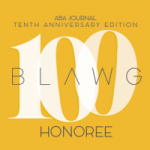By Professor Deborah Jones Merritt, The Ohio State University Moritz College of Law
Stark racial disparities mark our profession’s licensing system. Last year, 88% of White candidates passed the bar exam on their first try. For BIPOC candidates, pass rates were significantly lower: 66% for Black candidates, 76% for Latinx candidates, 78% for both Hawaiian and Native American candidates, and 80% for Asian candidates. These racial disparities have existed for decades. Why do they persist? And why do we, as a profession, tolerate them?
New research from the AccessLex Institute confirms what many scholars have suspected: candidates who have the resources to devote extensive time to bar preparation are more likely to succeed than those who lack those resources. The bar exam is a test of family and financial resources, rather than minimum competence to practice law. White candidates are more likely to benefit from those resources than BIPOC ones, and the bar exam mirrors those differences.
But the AccessLex study goes further: it shows that, even after controlling for a host of factors (including study time and LSAT score), White candidates are more likely than candidates of color to pass the bar exam. What explains that racial tilt?
In a recent op-ed, Claudia Angelos, Carol Chomsky, Joan Howarth, and I suggest that at least part of the answer lies in the nature of high-stakes testing. Research repeatedly demonstrates that stereotype threat affects performance on these exams. Test-takers who belong to groups that our culture stereotypes as low-performing on a particular test will perform less ably than they would absent that stereotype. The threat, notably, hits high-achieving individuals particularly hard. And it stretches across race and gender. White men, for example, perform less well on math tests when they are reminded that “Asians outperform Whites” in math. Our profession, in sum, has created a licensing system that predictably and inexorably favors White candidates. At the same time, it overlooks knowledge and skills that we know are essential to protect clients: We don’t test client counseling, fact investigation, cultural competence, or negotiation. Nor do we test doctrinal knowledge in the subjects most likely to assist clients of color: immigration, juvenile law, employment law, fair housing, and other civil rights statutes. It’s time to acknowledge and rework the racist impact of our licensing system. For more, please click here.
Filed under: Uncategorized | Tagged: bar exam, bar exam outcomes, pedagogy, racial justice | 2 Comments »









